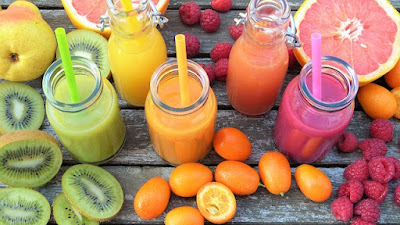Common sources of vitamin C and its role in the immune system
Vitamin C, also known as ascorbic acid, is an essential water-soluble vitamin that our body needs to function properly. It is a potent antioxidant that helps to protect cells from damage caused by free radicals, which can lead to inflammation, chronic diseases, and aging.
What are the functions of vitamin C?
Nutricode Vitamin C plays several important functions in the body, including collagen synthesis, iron absorption, immune function, wound healing, and cardiovascular health. It is also necessary for healthy skin, bones, and teeth.
- Collagen synthesis: Vitamin C is essential for the production of collagen, a protein that is a crucial component of connective tissues such as skin, tendons, ligaments, and cartilage.
- Antioxidant: Vitamin C is a potent antioxidant that helps to protect cells from oxidative stress caused by free radicals. Free radicals can damage cells, leading to inflammation and chronic diseases.
- Iron absorption: Vitamin C helps the body absorb iron from plant-based foods such as spinach and lentils.
- Immune function: Vitamin C plays a crucial role in supporting the immune system by enhancing the production of white blood cells and antibodies.
- Wound healing: Vitamin C is necessary for the healing of wounds, cuts, and bruises as it helps to produce new tissue and blood vessels.
- Cardiovascular health: Vitamin C has been shown to have a protective effect on the heart and blood vessels, reducing the risk of heart disease and stroke.
- Skin health: Vitamin C is essential for healthy skin, as it supports collagen production, which is necessary for skin elasticity and firmness.
5 nutritious foods, that are Vitamin C
Unlike many other animals, humans cannot produce vitamin C on their own, so we must obtain it from our diet or supplements. Some common food sources of vitamin C include citrus fruits (such as oranges and grapefruits), berries, kiwi, papaya, broccoli, peppers, and tomatoes.
- Citrus fruits. Oranges, lemons, limes, grapefruits, and tangerines are all rich in vitamin C.
- Berries. Strawberries, raspberries, blackberries, and blueberries are all good sources of vitamin C.
- Tomatoes. Tomatoes are a good source of vitamin C and are also rich in lycopene, an antioxidant.
- Broccoli. Broccoli is a cruciferous vegetable that is high in vitamin C and other nutrients.
- Red and green bell peppers. These vegetables are excellent sources of vitamin C and can be eaten raw or cooked.
What disorder is associated with lack of vitamin C?
The severe deficiency of vitamin C can lead to a condition called scurvy, which is a potentially life-threatening disorder. Scurvy is rare in developed countries, but it can occur in individuals who do not consume enough vitamin C in their diet over an extended period.
The symptoms of scurvy include fatigue, weakness, muscle and joint pain, swollen and bleeding gums, slow wound healing, easy bruising, and petechiae (small red spots on the skin). In advanced cases, scurvy can lead to anemia, edema, jaundice, neuropathy, and even death.
Scurvy was a significant health problem in the past, particularly among sailors and soldiers who were unable to get fresh fruits and vegetables on long voyages. Today, scurvy is rare in developed countries due to the widespread availability of vitamin C-rich foods and supplements.
Vitamin C supports several key functions
Overall, vitamin C is a vital nutrient that supports several key functions in the human body. It is essential to ensure that you are getting enough vitamin C in your diet or through supplements to maintain optimal health.



Post a Comment